PM underlines macro-economic stability and higher growth rate as top priorities in new year
VGP – On the threshold of the New Year 2010, PM Nguyễn Tấn Dũng had an article recalling Việt Nam’s lessons and experience of overcoming difficulties and challenges amid the global economic crisis. The PM also pointed out solutions to consolidate macro-economic stability and obtain a higher growth rate.
The story began with inflation,
when the rocketing prices of food, petroleum and most of imports made prices on
domestic market to hike. In addition, financial and monetary policies were
loosen for years, foreign investment capital in stock market sharply increased,
the total means of payment and outstanding credits surged, especially in 2007,
and we were forced to readjust prices of coal, petroleum and electric power in
line with the market regime. The aggregate impact of all these elements made
the consumer price index in our country to reach a double-digit figure, higher
than some countries in the region, put production and people’s life in difficulties,
caused worries and diverted feelings in the society. In such a context, we
adopted the priority targets of curbing
inflation, stabilizing macro-economy, guaranteeing social security and maintaining
a proper growth rate through eight groups of synchronous solutions in order
to fulfill this unscheduled major task.
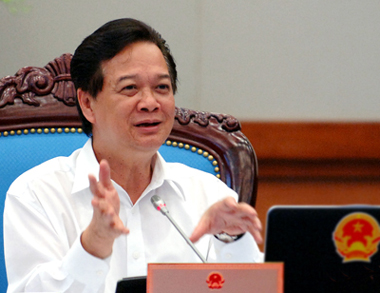
PM Nguyễn Tấn Dũng: The overall targets for 2010
are to consolidate macro-economic stability and attain a growth rate higher
than 2009 – Photo: VGP
Since September 2008, the
financial crisis and economic recession, rising from the US, spread out
worldwide, seriously affecting most of economies and causing negative impacts
on our country, especially in terms of export, investment capital, tourism
revenue and remittance, diminishing growth and threatening macro-economic
stability and social security.
Recognizing serious impacts
of the crisis, in early quarter IV of 2008, we shifted priority targets from curbing inflation to preventing growth
recession while maintaining macro-economic stability and social security. The
Government timely issued economic stimulus policies and provided interest rate
incentives in line with the actual situations in order to boost up production
and business, secure employment and growth.
Thanks to great efforts
made by the entire Party, people, army and the business community, under the
sound leadership of the Party Central Committee and the effective management of
the State, we realized the overall targets of each year. Inflation was kept in
control, since mid-2008, price increase was reined in and slashed down to 6.52%
this year. Việt Nam has managed to obtain a GDP growth rate of 6.23% last year
and in 2009, when the world economy see a negative indicator, it continued to
be one of few countries attaining a relatively high growth rate of 5.32%; macro-economy
was stabilized; social security and welfare maintained; national sovereignty, political
security and social order and safety guaranteed; the country’s status and
strength further consolidated, and its position heightened on international
arena.
At the Consultative Group (CG) Meeting in early December, international donors offered a record ODA commitment of over US $8 billion in 2010. This proved that the international community highly admired the Party and State’s guidelines for renovation and socio-economic development.
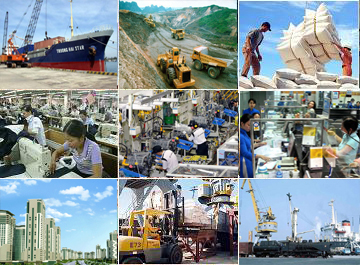 |
| At its 6th sitting session, the 12th National Assembly set the target of the growth rate of 6.5% in 2010 |
We can draw
out many valuable lessons and experience of coping with difficulties over the
past two years: (1) Sustaining macro-economic stability and social security
while creating a favorable climate for business activities; (2) Mobilizing all
investment resources to promote production and business, and to expand markets
in an increasingly effective way is the decisive factor to sustain growth and
the material resource to stabilize macro-economy and social security; (3) Closely
following actual market changes, so as to make timely and sound readjustments; at
the same time, directing the implementation in a drastic and prompt manner; (4)
Guaranteeing national defense and security and enhancing diplomatic work to lay
the good foundation for socio-economic stability and development; and (5) Creating
high political and social consensus as an important driving force and an aggregate
strength to realize all missions in the difficult time.
In 2010, though the world
economy has seen positive changes, signs of its recovery remain weak. The
global economic growth rate is estimated at about 3%, mainly because of
stimulus packages for investment and domestic consumption in different
countries; the world commodity trade only increases by 2.7% over 2009. Developed
economies, which are now our major export markets and are pouring a large sum
of investment capital in our country, still face difficulties, their growth
rate stands at around 1.3% and their import demand up only 1.5%, lower than the
average of the world [1]. Many countries are weighing the options
to continue policies of economic stimulus and loosen credit on the one hand, or
to tighten these policies on the other hand. The US dollar, the backbone
currency used in international payment, is experiencing ups and downs, affecting
prices of many goods and investment channels. Some economies are trying to
readjust the interrelationship between accumulation and consumption; protectionism
tends to increase. In these conditions, such an open economy which is deeply
integrating into the world economy and greatly depends on external factors like
Việt
For Việt Nam, the year 2010
will be an eventful year,when the country concludes its five-year
socio-economic development plan 2006-2010, organizes Party congresses at all
levels before convening the 11th Party National Congress, celebrates
the 1000th anniversary of Thăng Long–Hà Nội, and hosts many national
and international events. Thus, the successful implementation of the
Socio-economic Development Plan 2010 and the five-year plan 2006-2010, paving
the way for realizing the socio-economic development strategy 2011-2020, is not
only political responsibility of each and every cadre and Party member but also
a legitimate requirement of the entire people.
At its 6th
sitting session, the National Assembly adopted the overall targets for 2010,
namely striving best to recover economic
growth rate higher than 2009; increasing
macro-economic stability; improving growth quality; preventing the recurrence
of high inflation; further maintaining social security; proactively integrating
in and raising efficiency of international economic cooperation; securing
political stability, social order, national defense and security; obtaining
highest norms set in the five year socio-economic development plan 2006-2010.
The main guideline in directing socio-economic development in 2010 is to consolidate macro-economic stability in order to attain a higher economic growth rate, both in quantitative and qualitative terms, while preventing the recurrence of high inflation. And a growth rate higher than in 2009 will bring about conditions and resources to ensure macro-economic stability and better social security.
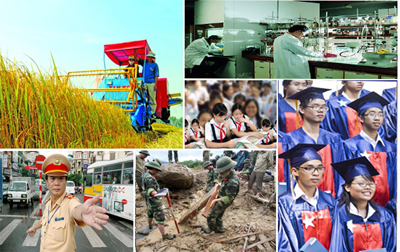 |
| In 2010, all walks of life and the business community should join efforts for stronger national development |
In this spirit, while
taking consistent measures to fulfill the overall target and specific norms
mentioned in the plan 2010, it is necessary to realize five major groups of
tasks and solutions as follows.
First, enhancing
macro-economic stability and secure key balances of the economy
Macro-economic
stability is the first and foremost condition to develop production and business, ensure social
stability and sustainable development. The fundamental principle of
macro-economic management is to observe rules of the market economy, secure key
balances of the economy, closely combine fiscal policies with monetary ones and
among the instruments of the monetary policies; properly deal with the
interrelationship between credit interest rate, exchange rate, international
balance of payment, especially balance of trade; well manage foreign exchange
market and national debt; guarantee capital and liquidity of the economy; try
to increase revenue and save spending; boost up investment and growth, prevent
inflation and secure safety of the financial and banking systems.
It is necessary to further highlight
the State’s regulatory role, especially in such a transforming country like
Việt Nam, where the market economy is not yet completely formed, economic
balances not yet quite stabilized and competitive environment still imperfect. The
State intervention into the market helps to guarantee market economic rules, without
distorting market relations and to ensure macro-economic stability. When using
regulatory tools, we must pay close attention to the scope and duration for
high efficiency and low expenditure. We need to anticipate all market
responses; if these responses can distort fundamental balances and cause
macro-economic instability, they must be timely adjusted.
Second, to spare no
effort to boost investment, production, business and economic restructuring.
Macro-economic stability is
very important but is not purely a policy issue. Policy itself cannot decide
everything but can only create favorable environment and conditions for
developing production and business, mobilizing and distributing resources, adjusting
possibilities of development and orientating economic activities. Macro-economic
management also depends on economic potential. If economic potential is not
strong enough, macro-economic management will be constrained. Therefore, lifting
difficulties, mobilizing investment resources, pushing up economic
restructuring, expanding production and business, and boosting up export are
the most decisive factors which must be centered in sustainable development.
Agriculture, including
forestry and fisheries, plays an important role in poverty reduction, social
stability, food security and export. Agro-products, especially primary ones, though
slightly affected by the global financial crisis and economic downturn, are the
group of commodity strongly influencing prices in our country. It is necessary
to foster agricultural production with increasingly higher quality and
efficiency to provide more products for domestic consumption and export, raise
purchase power and better farmers’ living standards. Climate change, storms and
floods, droughts, and epidemics always threaten agricultural production, so we
need to fruitfully conduct preventive work in order to minimize damages.
Industrial development,
with a high added valued, is an essential phase of economic restructuring and
national industrialization and modernization. To obtain a growth rate higher
than 2009, we must raise production value and added valued of the industry
sector. The declines in production and consumption during the crisis have helped
us to see more clearly the competitiveness and demand of each category of
product in each market. Enterprises, sectors and localities should be aware of
this to deploy their production in 2010. The main orientation is to place focus
on products with high added value, large market share and rapid growth rate, at
the same time enlarging consumption markets and closely watching all new
changes and making timely readjustments.
In 2010, the State would
continue to increase investment in order to stimulate growth, encourage all
economic sectors to invest in infrastructure construction and production and
business development. Increasing investment will not only create new production
capability, boost growth in the construction sector but also create more
markets for goods and services, generate more jobs, and therefore, bringing
about pervasive effects on the entire economy. At the moment, it is very urgent
to speed up the construction of projects and generate more products, so as to
improve investment efficiency. Thus, capital allocation and mobilization of
resources for the projects which can be finished in 2010 must be carried out
promptly and strictly. We resolve to stop dispersing resources, prolonging the
schedule, and delaying the operation of the projects.
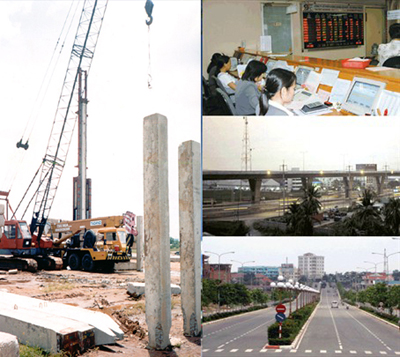 |
| The Government pledges to provide credit interest rate subsidiaries for enterprises to upgrade their technology and expand production |
To boost export, narrow
trade gap, and improve the balance of trade are very important to stabilize
macro-economy and growth. Though there remain difficulties due to the slow
recovery of the world economy, the situations are more favorable than in 2009.
It is necessary to tap traditional markets and those with free trade agreements
while exploring new potential ones in East Europe, West Asia, Middle East,
Africa and
Our domestic market is very
large, with a high growth rate and stability. For consecutive years, the retail
goods and services revenue increased by around 10%, and in 2009 about 12% (after
eliminating price increase); distribution services in the domestic market
contributed about 14% of GDP, exploited over 5 million laborers, and accounted
for the highest percentage in the service sector. Multinational groups have
been proactively exploiting our domestic market. Last year, with the view of
“domestic market is the foundation, external markets are important” and in
response to the “Buy Việt
It is required to remove
all obstacles to investment and business in order to promote production and
expand market; we resolve to simplify administrative procedures, especially in
such fields as market access, capital construction, customs, tax declaration
and payment, so as to save costs and sharpen enterprises’ competitiveness. We
are determined to cut down at least 30% of current administrative procedures. The
Government’s determination is being transformed into actions of ministries, sectors
and localities. It is important to ensure synchronism in operations of
different sectors at different echelons because a weak component can hinder and
hold back the operation of the whole apparatus.
Apart from administrative
procedure reform in favor of investment, production and business, the
Government will channel its aid to agriculture and rural areas, and perfect
credit guaranteeing mechanism for small and medium enterprises, facilitating
their access to development resources.
While striving best for higher growth rate and preventing inflation, it is necessary to attach importance to growth quality. We need to tighten supervision and management over public investment and operations of State-owned enterprises; perfect management and salary mechanisms in State-run sector, so that salary must be closely attached to business performance and efficiency of the use of capital and property. Enterprises in all economic sectors must check different phases of production and circulation, perfect their management, save input materials and energies, reduce intermediary costs, better the performance of each enterprise and the whole economy. All forms of enterprises are encouraged to develop. Role of State-owned enterprises should be highlighted in stabilizing macro-economy and growth.
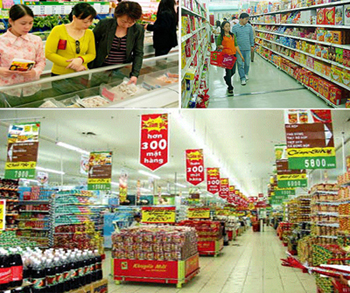 |
|
|
To improve growth quality
and sustainable development, apart from the aforesaid immediate tasks, it is
necessary to restructure the economy and renew the model of growth. This is a
decisive condition to sharpen competitiveness in the context of increasing globalization
and international economic integration. This work must be conducted
continuously for years, in combination with resource accumulation in each and
every enterprise, each production industry and in the entire economy. We must
develop gradually while taking short-cuts in the fields where science and
technology are changing rapidly and we have necessary conditions. This process
must be sped up since 2010.
We must complete all
preconditions for restructuring. First and foremost, we need to form an
integrated market economic mechanism, develop technology market, create an
equal ground for all players from different economic sectors; vigorously reform
national administration; develop human resources, especially high-quality ones;
and mobilize all means to upgrade and modernize infrastructure. We should
clearly describe contents of restructuring, focusing on restructuring
production industries, promoting economic restructuring, in combination with
corporate restructuring and readjusting market strategy in order to quickly
raise domestic value and added value of commodities and services, and nurturing
the national business force with powerful Vietnamese brand-name enterprises
which can take part in the global production network. This is also the
transformation from a model of growth which mainly relies on extensive factors
(capital, natural resources and low-quality labor force) to an intensive model
which is based on aggregate productivity elements, such as science, technology,
high-quality human resource and modern management skills, so as to raise these
factors’ contributions to growth. All enterprises should be fully aware that,
in the current era of rapid technology development, aggregate productivity
factors are playing a decisive role in terms of quality, efficiency and
competitiveness. In this process, the State creates necessary environment and
conditions, while the business community functions as the decisive force.
In 2010, the Government
will continue providing credit interest rate subsidiaries for enterprises to
renew their technologies and expand production activities. However, renewing
equipment and technology must be closely associated to new organizational and
administrative models, bringing about aggregate efficiency and promoting
sustainable growth.
Third, to solve burning
social issues, striving for specific breakthroughs in these important and
sensitive fields
Over the past years, our
Party, State and the entire political system have made great efforts in
fulfilling various social missions and have achievements certain positive
results, especially in reducing poverty, maintaining social security and
welfare. However, these results are not really stable, the rate of
re-impoverishment remains high, some burning social issues are slowly solved. These
weaknesses have affected our achievements. The people recognize socio-economic
achievements in a practical and specific way through their own life and the
social environment in which they live daily. The people are requiring the Party
and State to create real breakthroughs in these fields. This is also an
essential criterion to show the preeminence
of our regime.
It is impossible to settle
burning social issues in a short time but we must create clear advances, focusing on some following ones: (1) To
rapidly and fruitfully realize the Poverty Reduction Program in 62 poorest
district nationwide while cutting poverty rate in other regions; (2) To better
conditions and quality of healthcare and medical examination and treatment for
people; ensure food hygiene and safety, and protect environment; (3) To improve
quality of education and training, especially at tertiary level and in
vocational training; (4) To prevent and combat corruption, crimes and social
evils; and (5) To ease traffic jams and inundation in big cities.
The basic measures to realize the aforesaid tasks are to perfect legal system, mechanisms and policies, evaluation standards and sanctions; to further enhance legal popularization and education; to increase openness and transparency; to boost inspection, supervision and strictly punish violations; the State will increase investment while mobilizing all social resources; to highlight responsibilities of each and every sector at all echelons, first and foremost of their leaders, at the same time to engage the entire political system in solving these urgent tasks.
Fourth, to better
capability in directing and organizing the implementation of development
policies and targets
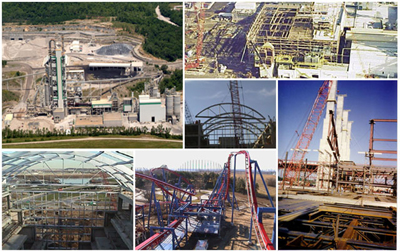
We need to conduct prompt
and fruitful implementation work, words must be accompanied by actions. Party
committees and governments at all levels, from central to grassroots, particularly
leaders, must timely deal with all issues arising from realities. We must
drastically direct and organize the realization of policies in a resolute and
prompt way, so that these policies can not only be converted into resources for
socio-economic development but also increasingly perfected in line with
requirements of life and aspiration of people. Through directing and organizing
the implementation work, we can find out new and creative solutions from the
rich and active reality in each field,
locality and unit.
Fifth, to well conduct
information and propaganda work to disseminate guidelines and policies, create
a high consensus in the entire political system and the whole society, from
thought and actions
Development is an aggregate
multipurpose process with the combination and interaction of economy, society
and environment, in which some specific short-term goals may be contradicting
to one another. Globalization can help to facilitate spatial expansion and
temporal change of the reproduction process; moves of development, for times,
are beyond all predictions and estimations. Furthermore, no mechanism or policy
can cover all socio-economic phenomena. So, it is very normal when there are
different opinions to a specific policy. The most importance is that, after
making decisions, we must spare no effort to fruitfully realize the set tasks,
solutions and targets. We need to make information public and transparent in order to clarify the Party and
State’s guideline and policies. Information and propaganda work must aim at the
country and people’s interests. It is necessary to timely reject false
information, creating sound awareness, high social consensus, and consistent
actions. This is very essential in Việt
The world economy is
experiencing unpredictable changes. It is necessary to keep a close watch on
all moves of development in order to take proper and timely policy responses,
so as to make use of new opportunities while overcoming difficulties, trying to
gain a higher economic growth rate and solving social issues effectively.
We need to follow close
behind actual situations, take prompt actions, assume responsibility, face and
overcome difficulties, realize all socio-economic targets We need to closely
associate socio-economic development tasks to guaranteeing national defense and
security, and improving efficiency of diplomatic work. By doing so, we can
protect the country’s legitimate interests and national sovereignty, further
raising Việt
[1] Indicators released by the International Monetary Fund, October 2009

